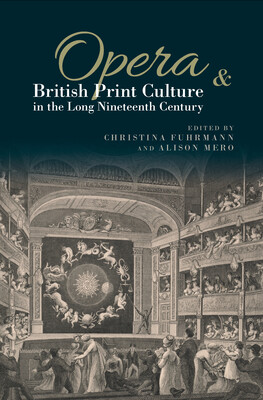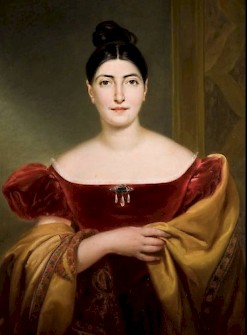Opera & British print culture
'Afterword' for Opera & British Print Culture in the Long Nineteenth Century, edited by Christina Fuhrmann and Alison Mero (Clemson, SC: Clemson University Press; Liverpool University Press, 2023)
WINNER: H. Robert Cohen/RIPM Award of the American Musicological Society, 2024
 This book was conceived as a set of case studies on the relation between English print media and multiple forms of musico-dramatic presentation across Great Britain and Ireland in the 19th century. After a workshop at King’s College London in 2017, the concept widened (notably beyond London) to embrace a kaleidoscopic range of subjects and processes touching many varieties of ‘opera’ and its impact, whether conceived as a genre, a printed score or libretto, a working career or a public event with political meaning. The resulting collection not only explores a proliferation of print forms and operatic styles, but helps explain how print represented, then furthered, operatic ideas in a place not conventionally thought to be seriously interested.
This book was conceived as a set of case studies on the relation between English print media and multiple forms of musico-dramatic presentation across Great Britain and Ireland in the 19th century. After a workshop at King’s College London in 2017, the concept widened (notably beyond London) to embrace a kaleidoscopic range of subjects and processes touching many varieties of ‘opera’ and its impact, whether conceived as a genre, a printed score or libretto, a working career or a public event with political meaning. The resulting collection not only explores a proliferation of print forms and operatic styles, but helps explain how print represented, then furthered, operatic ideas in a place not conventionally thought to be seriously interested.
Many forces collide to suggest new social and historical meanings through the developing worlds of advertising, music publishing, libretto construction, theatrical programming, musical training, career development, audience building, critical commentary, imaginative literature, and national and religious identities. In this deepened context, operas are no longer isolated art works detached from real life. 
When asked to provide an Afterword to the twelve chapters, I was stumped until I recalled my own excited discovery of period print ages ago – and the interpretative problems any antique periodical can present. Writing then became a journey of reflection on how far British music study has come since my academic advisors first warned me off music and 19th-century Britain. I followed my own instincts, expanded my search and have never looked back.
'The volume's remarkably open approach ... is at the core of its interdisciplinarity ... whether unfolding over a programme of performances, issues of a periodical or decades of an individual's life and career'
Chloe Valenti, University of Cambridge
‘Operatic Britain in the nineteenth century, so long thought in the shadow of its continental rivals, becomes newly relevant, challenging us to write an alternative, more inclusive, more human-centered history of the genre, the time, and the place’
Roger Parker, King’s College London
 Langley
Langley